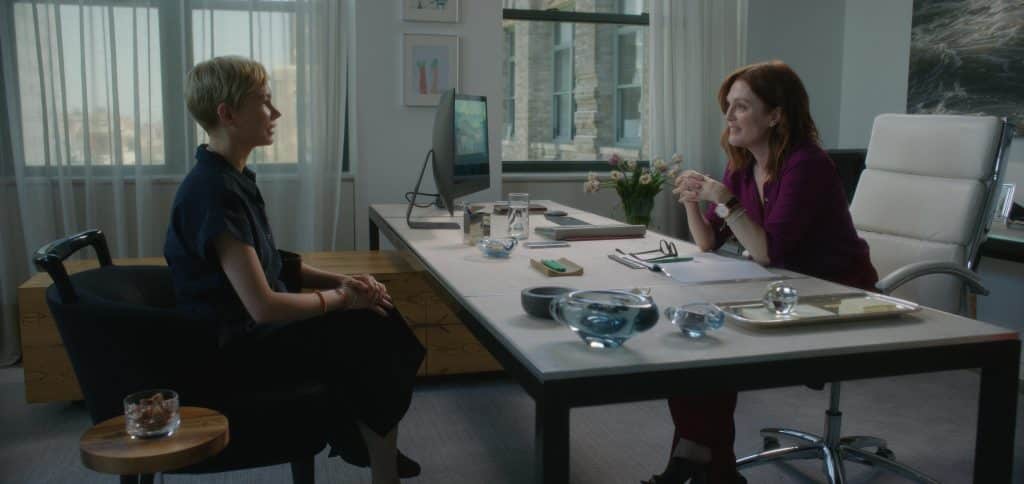Read also:
How to Watch FX Live Without CableHow To Watch AMC Without CableHow to Watch ABC Without CableHow to Watch Paramount Network Without CableThis English-language remake of the 2006 Danish drama stops short of having anything interesting to say about its privileged protagonists.
At the core of After The Wedding is the story of flawed people doing their best in difficult situations. It’s in those moments that it feels like something special and rare: A film about adults working through their issues in an adult way. Unfortunately, those compelling elements are too few and far between in a movie that doesn’t fully trust its own story and tries to dress it up with an air of ominous mystery that winds up undercutting the drama rather than adding to it.
Written and directed by Bart Freundlich, After The Wedding is an English-language remake of Susanne Bier’s 2006 Danish drama of the same title, which earned an Academy Award nomination for Best Foreign Language Film. Freundlich’s biggest change is gender-flipping the original. In place of Mads Mikkelsen’s Jacob, Michelle Williams plays Isabel, an American do-gooder who helps run an Indian orphanage in Kolkata. Freundlich’s slow-panning drone shots establish the orphanage as a place where Isabel has found peace and purpose, particularly in her relationship with a sensitive young boy named Jai (Vir Pachisia), who she practically raised since he was found abandoned as a baby. The orphanage is in desperate need of money, however, so when a potential benefactor requests an in-person meeting in New York, Isabel isn’t really in a place to say no, even if it means leaving the country just before Jai’s birthday.
Enter more drone shots establishing the polar opposite world of high-powered CEO Theresa Young (Julianne Moore, Freundlich’s real-life spouse) and her soft-spoken sculptor husband Oscar Carlson (Billy Crudup). Though Theresa’s a loving and attentive mother to her 8-year-old twins, she otherwise seems to be the height of oblivious white American entitlement. During their first meeting, Isabel’s impassioned speech about how little money it takes to make a massive impact in the poorest parts of India is interrupted when Theresa’s assistant stops in to ask whether it’s okay if the caterers use shrimp instead of lobster in the risotto. Theresa seems appalled by the thought. First world problems, indeed.

At first, After The Wedding sets itself up as a commentary on class, culture, and privilege, but it soon becomes clear that something else is afoot. Theresa’s not particularly invested in the details of Isabel’s work and is suddenly cagey about whether she’s actually going to make the $2 million donation Isabel thought had already been committed. Ignoring Isabel’s desire to return to India as quickly as possible, Theresa instead invites her to the nuptials of her twenty-something daughter, Grace (Abby Quinn), promising they’ll talk about the donation after the wedding. It’s a term that takes on multiple meanings as the film’s Gordian Knot of a plot unfolds.
To give away too much of what happens at the wedding and beyond would be to give away the game After The Wedding is playing. Suffice it to say that Isabel and Oscar are shocked to see each other. It’s clear they have some kind of history together and it’s clear it’s not a happy one, although questions of what it entails and whether Theresa knew about it when she invited Isabel (she claims she didn’t) slowly unfold over the rest of the story. Mychael Danna’s heavy-handed score occasionally makes the film feel like a full-on psychological thriller, which, in the end, it’s not. Still, there are several shifts that recontextualize what we’ve seen so far and cast previously inexplicable behavior in a different light.
Given its clear interest in being a showcase for its actors, it’s tempting to compare After The Wedding to a tense drawing room play. In fact, it’s the opposite. Drawing room plays keep the audience locked in with the characters as they work through their issues. After The Wedding is far too eager to cut away from scenes once we’ve learned whatever basic emotional idea we need to keep the twisty plot moving. The most intriguing conversations exist between the scenes Freundlich puts onscreen, and the actors are hampered by having to play beginnings and endings without being able to dig into the far more compelling middle bits.
After The Wedding is far too eager to cut away from scenes once we’ve learned whatever basic emotional idea we need to keep the twisty plot moving.
The more cards After The Wedding lays on the table, the more interesting it gets—not because its plot revelations are all that thought-provoking (most air towards the melodramatic), but because they finally allow the cast to act out nuanced human relationships. In some of the loveliest scenes, Isabel and Grace find unexpected commonality as two sensitive lost souls. There’s also an intriguing contrast between Isabel’s loosely defined maternal relationship with Jai and the parental relationships Theresa and Oscar have with their own children.
After The Wedding is interested in what family means and how families come to be, worthy ideas that, unfortunately, make the film’s initial focus on Indian aid ring a little hollow—a means to an end, rather than something it’s genuinely interested in. The Big Little Lies-style social satire also doesn’t really add up to something particularly meaningful, even if it’s engaging enough in its own right. There are a few transcendent moments where After The Wedding lives up to its potential. Otherwise, it sits in an uncomfortable middle ground between intrigue-laden melodrama and nuanced adult storytelling.
After the Wedding spends its honeymoon period in theaters August 23.